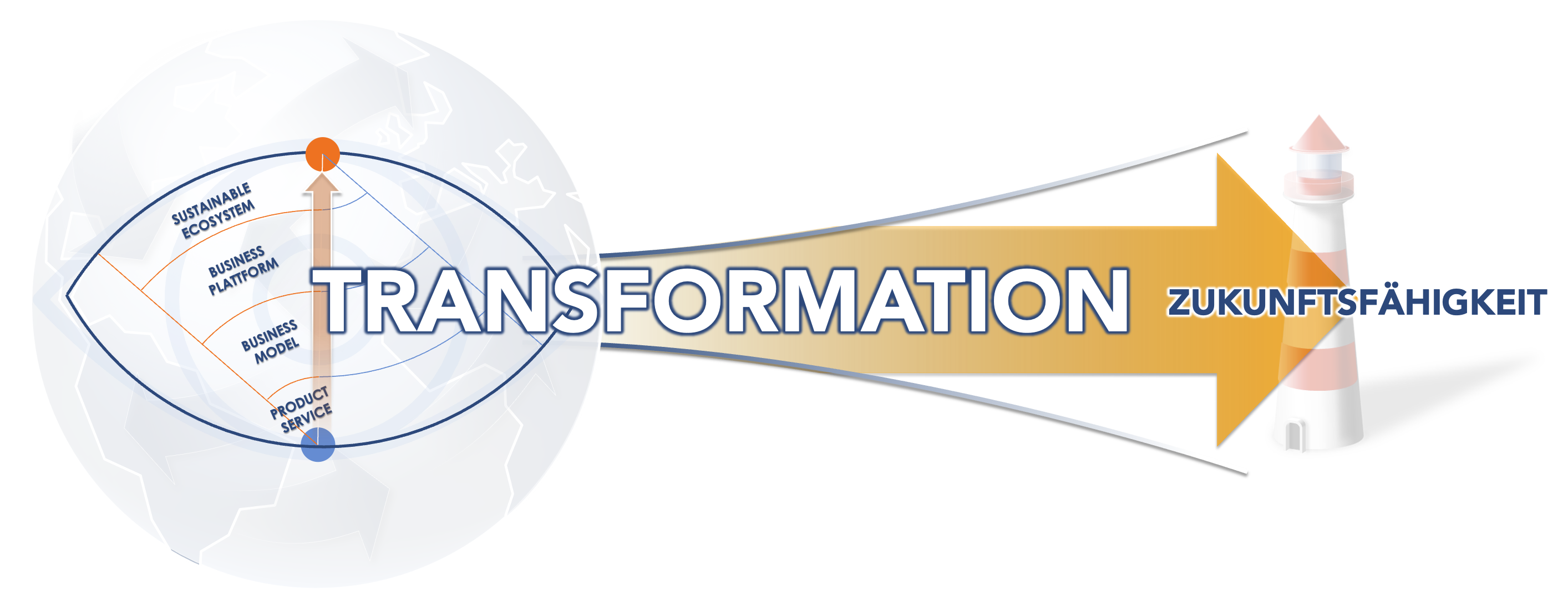Transformation
Customer expectations are changing in ever shorter cycles. This results in changes in several dimensions of the business model at the same time. Sales channels, products, networks and competencies are constantly renewing themselves with ever more intensive interactions.
Companies must meet these challenges with proactive transformation.

How can you leverage your current business model to the maximum through transformation?
The classic success pattern of industrialization is "linear scaling" based on industry knowledge.
The proportional relationship between business growth and capital investment is reaching its limits in a world of accelerated change. The path dependencies of historically grown industrial companies stand in contrast to the non-linear growth potential of individual customer needs. Technological progress offers new degrees of freedom for strategic development.
Tradition-preserving renewal as a successful pattern of transformation
The critical mass in the company must have internalized the effect of new degrees of freedom in order to be able to initiate a synchronized establishment process with trust and confidence.
Modern digital technologies, including AI systems, drive the speed of transformation as enablers and can support the anchoring and implementation of new degrees of freedom. In this context, transformation must become the core process of the company in order to sustainably develop future viability.


